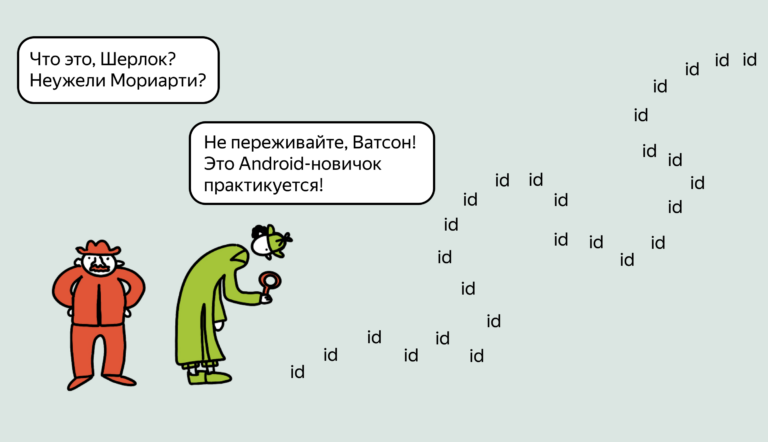About levels of foreign language proficiency
1. Let's think about the level of a person who reads English classics with almost no dictionary?
I was such a person in 2008 when I arrived at a private English language school in London. The school had groups of seven levels: Beginner, Elementary, Intermediate (+ Pre- and Upper-), Advanced, Advanced+. After testing, I was assigned to the Advanced+ group. I guess I had something in the Proficiency area, C2?
The Kazakh guys from the Pre-Intermediate group once laughed at me in a pub because the waiter didn’t understand me, but they didn’t have any problems. I also didn’t know some of the simple colloquial expressions that people in the Intermediate and even lower groups knew, since I had been focusing on reading classical literature for the previous five years. And he also understood live speech by ear very, VERY poorly. Similar to C2?
And what is the level of the person who was almost shot by the police in the USA because he could not understand the simple words “the police”? This happened to me in 2012 in Charleston, South Carolina. At that time, by the way, as a professional I had grown head and shoulders compared to 2008 and had already managed to work as a translator. But they would actually write later that he was a foreigner and didn’t know the language well. To be fair, “the police” was shouted by an African-American man with a characteristic accent, in civilian clothes, from a car without police markings (“undercover police” is what they call it).
A translation agency usually has an editor's department, where quite serious professionals work. They check already completed translations for errors before delivering them to the customer. In the bureau where I worked, in the editorial department there was a man who openly admitted that he spoke very poorly and could hardly comprehend everyday English speech. It’s good that he didn’t give a damn about what his “level” was, otherwise he probably would have quit his job and fallen into depression.
Many IT specialists understand technical texts in English tolerably and can even communicate with their Western colleagues. Standard tests show that they do not speak the language at any level at all.
One can, of course, argue that in the above examples there are no contradictions – well, just specific skills a person has at different levels: reading, say, C1, and speaking – B1. Okay, then what about the example from my article – about a Russian mathematician who lectured quite professionally in English, but had difficulty communicating on other topics? What is his level? Or people are deciphering ancient languages. DECORDING, KARL! What is their level of proficiency in these languages?
The accepted international system of levels, let’s say, offers a fairly adequate frame of reference, but it often disorients students, exacerbating their already erroneous idea of their own language competence and preventing them from correctly calculating the vector of further efforts.
2. It is impossible, it is impossible to perceive an English text by ear that you cannot understand in written form. It is impossible, it is impossible to construct phrases on your own that you could not understand in written form.
Any comparisons with how children learn language – advertising demagoguery from start to finish. Or products of its processing, which have turned into someone’s “own opinion”. And yes, I'm definitely a teacher. And here neuroscientist, 42 seconds. Yes, there are illiterate people who speak perfectly. But! To do this, you need to live (or better yet, work!) in a language environment for a VERY long time. In my articles, I proceed from the fact that the environment is Russian-speaking and there are 5–10 hours a week for learning a foreign language.
Many students do not understand basic phrases even in text format, and often even with a dictionary! And they expect miracles from conversations with native speakers. There will be no miracle. According to the latest data, by the way, language is also not transmitted sexually.
Almost everyone who complains about a lack of “conversational practice” should try reading any British newspaper. In a maximum of 5-7 minutes he will stumble upon a sentence that he cannot understand even with a dictionary. And they, Vasily Ivanovich, talk in such sentences.
I would suggest reading skill as the main indicator of language proficiency. The more complex and varied texts you are able to read without a dictionary with a more or less complete understanding of the semantic nuances, the deeper you FUNDAMENTALLY You know language, the greater your potential in the field of speaking and listening comprehension. Speaking and listening are APPLIED skills. Even the translator may not have them.
3. What part of speech is cold in the phrase “it is cold”? The textbook will be happy to provide a ready-made answer. And, it would seem, what's the difference?? However, if, with the help of a properly structured system of exercises, you understand the deep mechanisms underlying the construction of this (seemingly) simple phrase, then thousands of special cases of using individual constructions become simple and understandable. For example, why the -ing ending in “I remember having seen him”.
One day a woman called CT-School: “My husband and I are leaving for permanent residence, we urgently need to learn the language. There will be no problems with my husband, he is an IT specialist, he has been reading documentation in English all his life, and has a large vocabulary. But it will be difficult for me – I studied German, I don’t know any words at all.” Indeed, her reading of the word “her,” for example, left no one indifferent.
As a result, the wife was one of the leaders in the class, confidently outperforming people who had 10–15 years of study behind them in terms of speed and quality of assimilation of the material. The husband was also in the lead, only from the other end: he was BEHIND the entire flow and constantly slowed down the group. Despite a truly decent vocabulary, he had great difficulty in learning the principles of constructing English phrases. But to my wife, these principles seemed elementary; she caught them on the fly the first time. We decided that abroad he would suggest the words, and she would construct the phrase 🙂
With this article I tried to answer the constantly asked question “why don’t you divide students by level?” Yes, at CT-School, from the very beginning, complete zero-level students and Upper-Intermediate certificate holders sit in the same group, and zero-level students often cope better with tasks.
Advanced students already know approximately HOW to construct a phrase (usually called grammar). In the basic course, we do what is much more important in practice: we figure out WHY IT IS THIS WAY, and so this Many teachers and translators no longer know. But if you understand the mechanisms underlying the rules of grammar, it becomes much easier to both perceive and construct phrases. Understanding a few principles makes it much easier to remember many facts.






